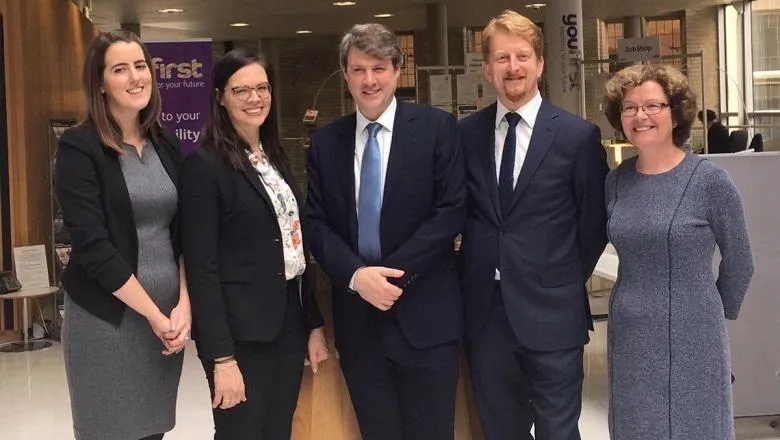28 February 2019
King's leads centre to promote social mobility
King’s has been selected to co-lead a national centre to research and develop best practices for universities on how to improve social mobility and eliminate equality gaps in higher education within 20 years.

Funded by the Office for Students (OfS), the centre will bring together a team from King’s, Nottingham Trent University and the Behavioural Insights Team.
At present, around £800 million is spent by universities on improving access and outreach, but there is relatively limited hard evidence on what works most effectively. The evidence and impact exchange, which will be established as an independent charity, will promote equality of opportunity by providing evidence on the impact of different approaches to widening access and improving outcomes and progression for disadvantaged students.
Director of Social Mobility and Student Success at King’s College London, Anne-Marie Canning MBE said ‘I’m delighted that King’s and the consortium we’ve formed has been recognised by the OfS in this way. It is widely known that students from disadvantaged backgrounds are less likely to go to university and less likely to achieve top grades while there. At King’s we have a fantastic track record both in improving our knowledge of how to overcome this but also putting it into practice, with 50% of our current undergraduates coming from BAME backgrounds. We hope to build on this with the work through the new centre.’
The consortium’s aims are to address barriers to higher education, student success in higher education and progression to graduate employment or further study. Working with experts across the sector, the consortium will develop an online toolkit, disseminate best practice and develop research forums to inform all higher education providers in their approaches to social mobility.
Susannah Hume, Interim Director of the evidence and impact exchange and Associate Director for What Works at King’s College London, said:
‘We hope the evidence and impact exchange will be a powerful force for good in the sector, helping senior decision makers and practitioners base their access and participation initiatives on the best evidence of what works.’
King’s is a research-intensive university, a member of the Russell Group and the University of London. It has a track-record of commitment to and innovation in widening participation.
The OfS will fund the Exchange for three years. It is expected to become financially sustainable after that.
Chris Millward, Director for Fair Access and Participation at the OfS, said:
‘All students should have equal opportunities to access and succeed in higher education, and to achieve successful and rewarding careers, but this is not currently the case, and the rate of progress in achieving equality is far too incremental.
‘We are committed to achieving transformational change, and we’re setting high expectations through our regulation to make that happen. But we’re also investing significantly in supporting universities to meet their targets by working in the most impactful ways.
‘A huge amount of time, money and resources are already invested in access and participation, but there is a lack of understanding about what works, and staff working at the coal face have been calling for a central place for evidence on effective approaches to be systematically gathered and shared. The evidence and impact exchange will meet this need, improving outcomes for students and providing better value for money on the investments that are made.
‘At the same time, we will expect universities to set stretching targets for themselves and take real action to close gaps in their institutions. This is the start of a new, more strategic approach to improving access and participation, and we expect universities to up their game.
‘I often hear university leaders say that improving equality of opportunity and outcomes is a top priority for them, and that a great university must be fully inclusive of talent and potential from all backgrounds. My message to them is clear: this is the moment to act on it.’
